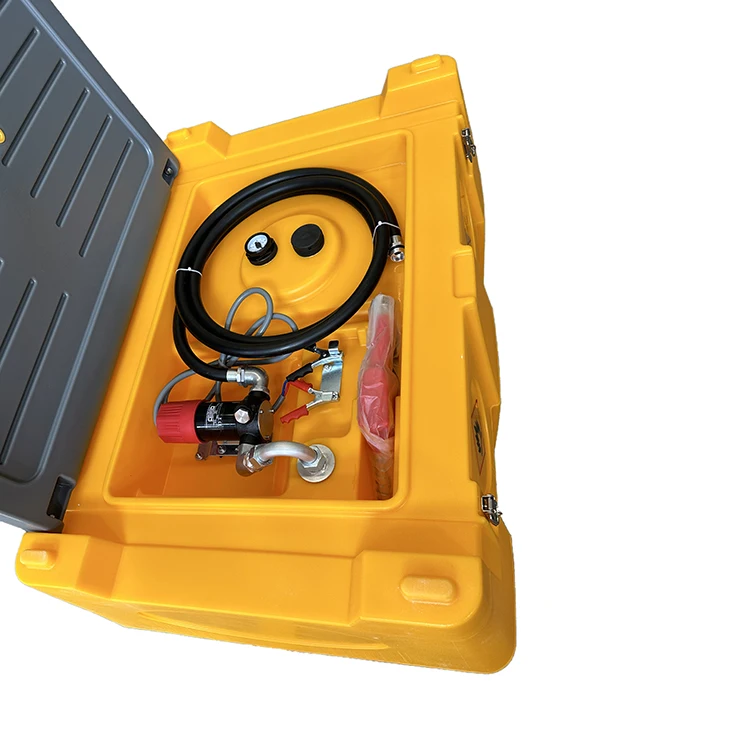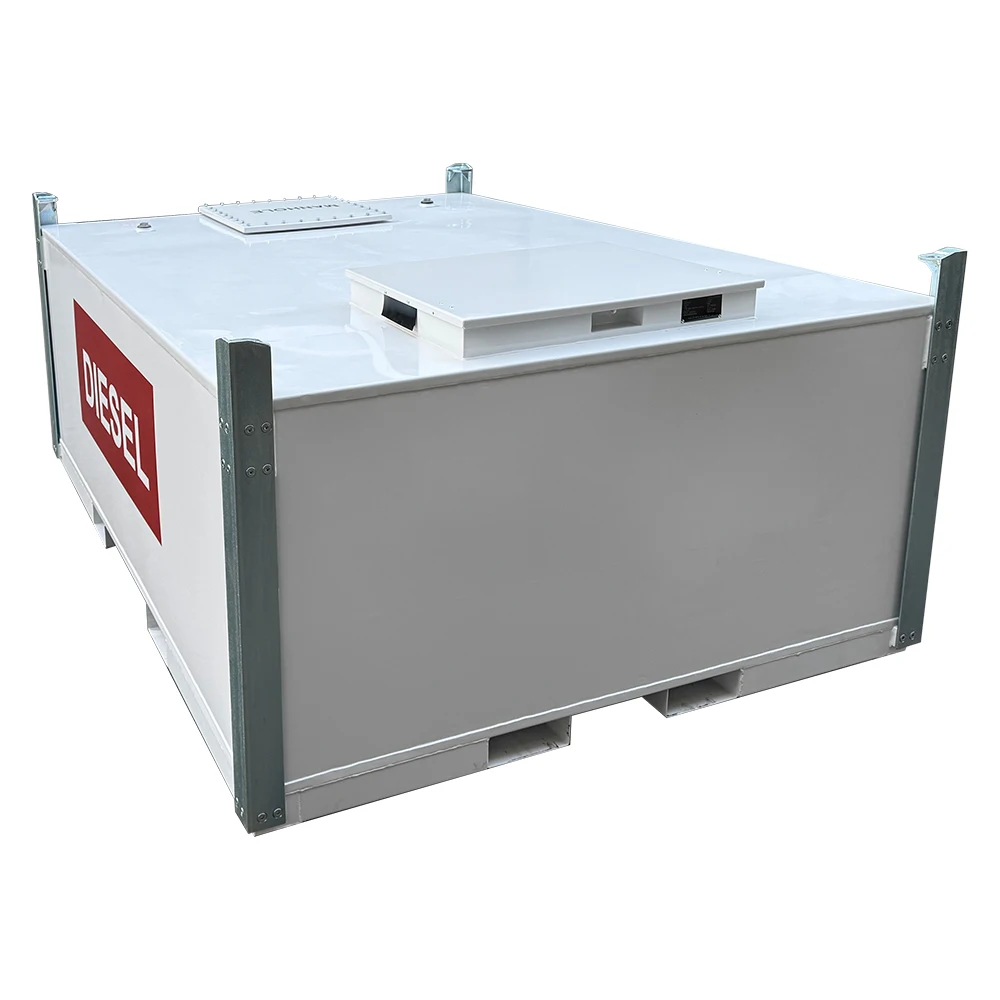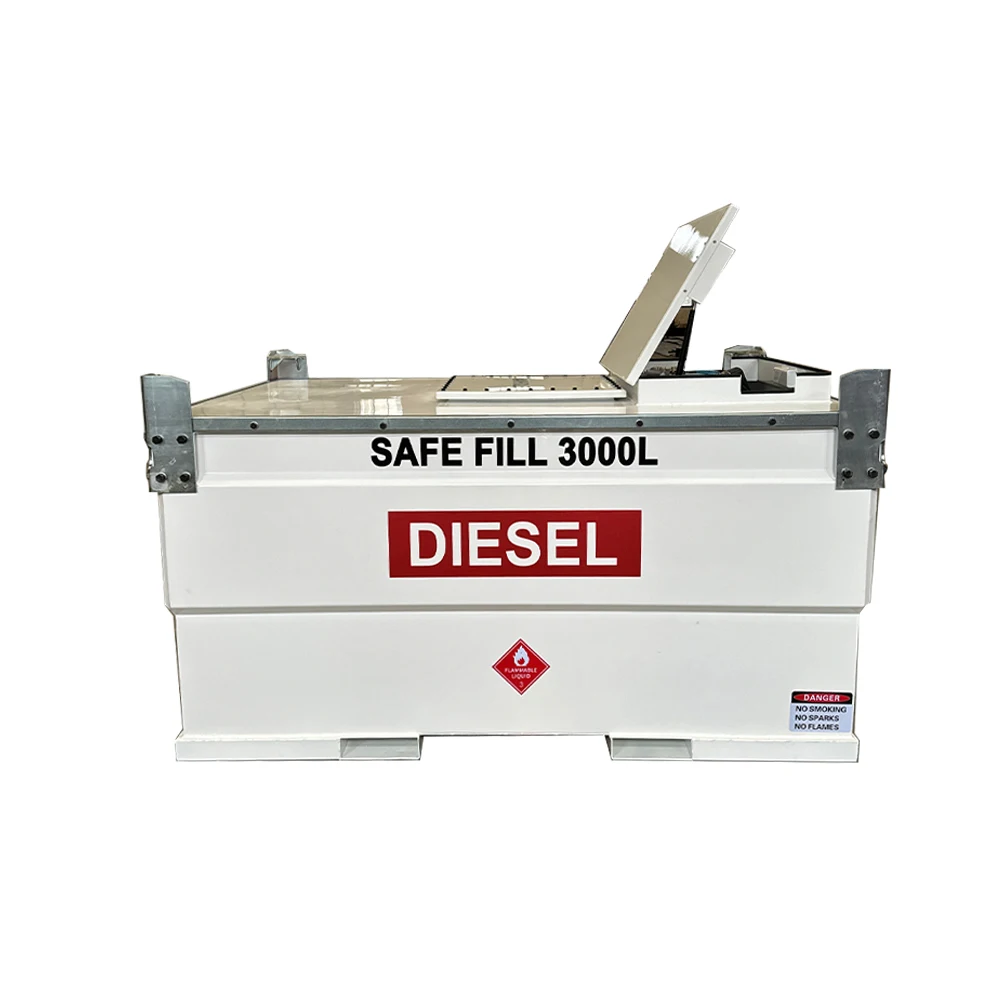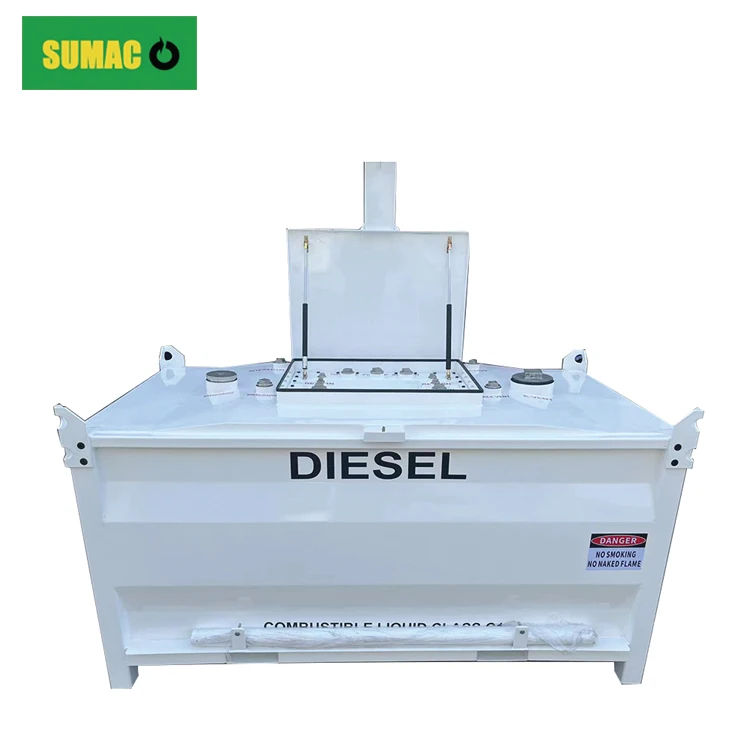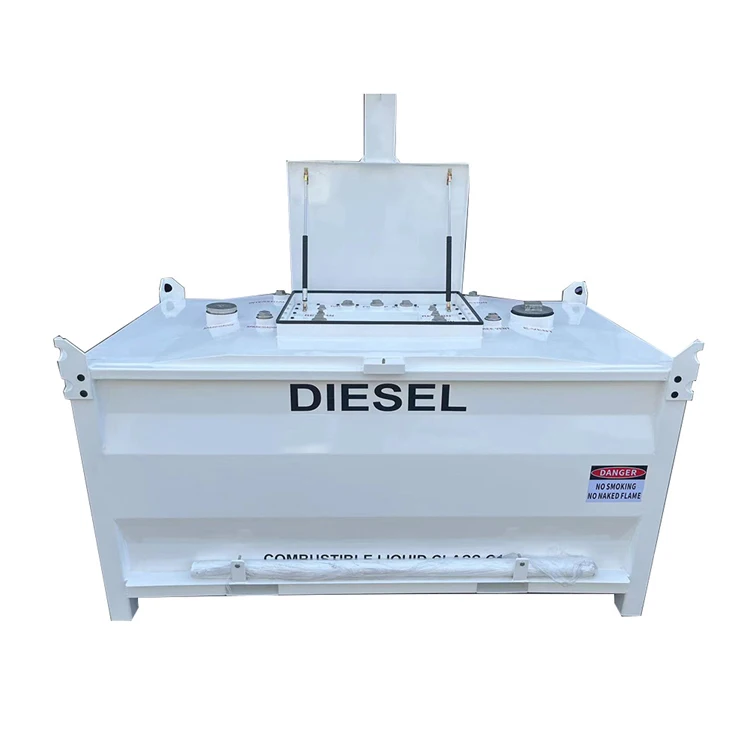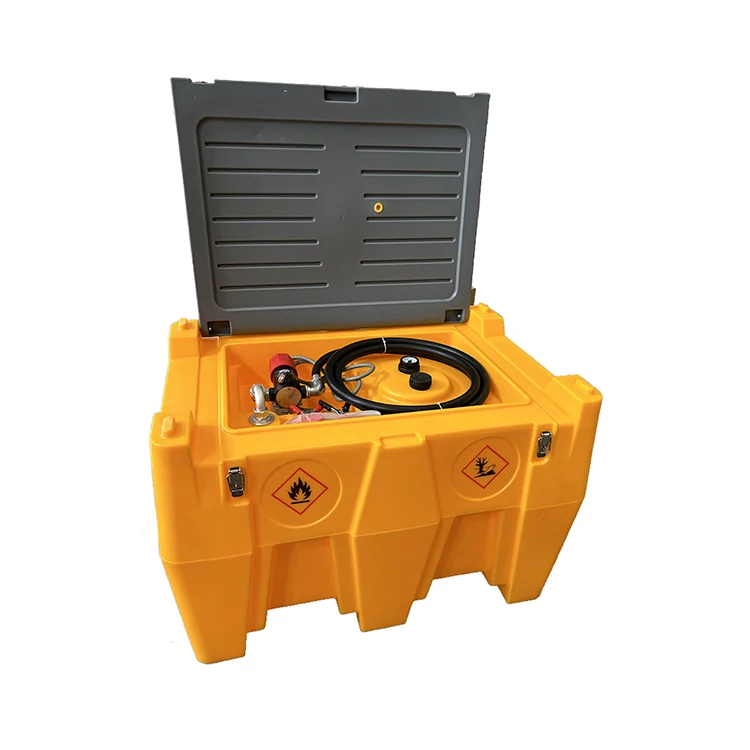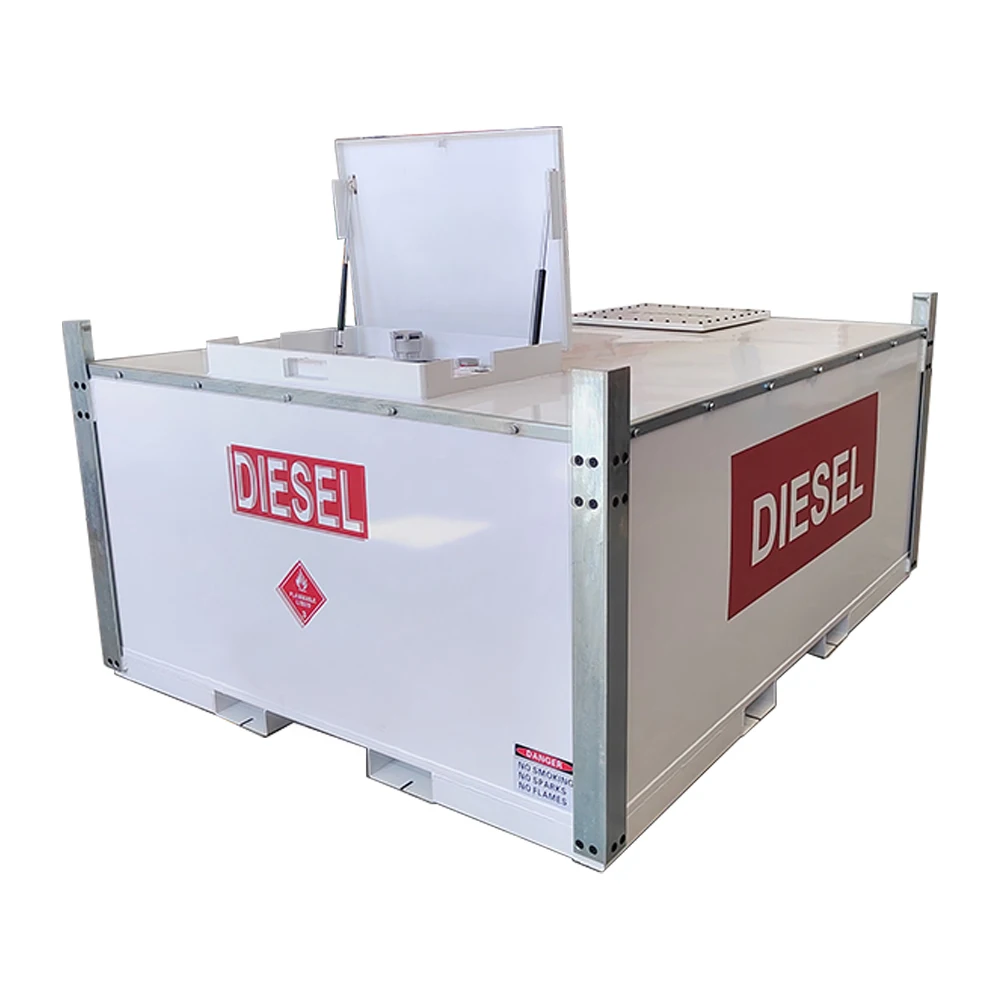Diesel fuelcube storage tank sale for USA
The transportation and allocation function of the gasoline storage tank is mainly realized in the following ways:
1. Oil product collection
Gasoline is transported from the refinery to the storage tank through pipelines, tank trucks and other transportation methods. As a centralized storage point, the storage tank receives gasoline from different refineries or production batches, brings them together, and realizes the initial integration of oil products.
2. Demand analysis and planning
The operator will analyze the gasoline demand pattern in each region based on the distribution of surrounding gas stations, industrial users, etc. and historical oil consumption data. At the same time, taking into account the demand fluctuations during special periods (such as holidays, emergencies, etc.), a detailed transportation allocation plan is formulated to determine the destination, quantity and time schedule for each transportation.
3. Transportation mode selection
Choose the appropriate transportation mode according to the specific conditions of the transportation distance, transportation volume and destination. For short-distance transportation, tank trucks have the advantages of flexibility and convenience, and can directly transport gasoline from storage tanks to gas stations or small users. For long-distance and large-scale transportation, pipeline transportation is more economical and efficient, and can continuously and stably transport gasoline to distant oil storage centers or large industrial users. In addition, rail tank cars are also commonly used for large-volume transportation over medium and long distances, and are suitable for transporting gasoline to transportation hubs or areas where large gas stations are concentrated.
4. Dispatching and monitoring
During the transportation process, the transport vehicles or pipelines are monitored and dispatched in real time through advanced dispatching systems. Once emergencies such as poor road conditions and equipment failures occur, the transportation routes can be adjusted in time or emergency measures can be taken to ensure that the gasoline is delivered to the destination on time and safely. At the same time, information technology is used to achieve real-time monitoring of parameters such as gasoline liquid level and temperature in storage tanks and transportation vehicles, so as to accurately grasp the status of oil products and reasonably arrange transportation and allocation tasks.
https://www.sumachine.com/
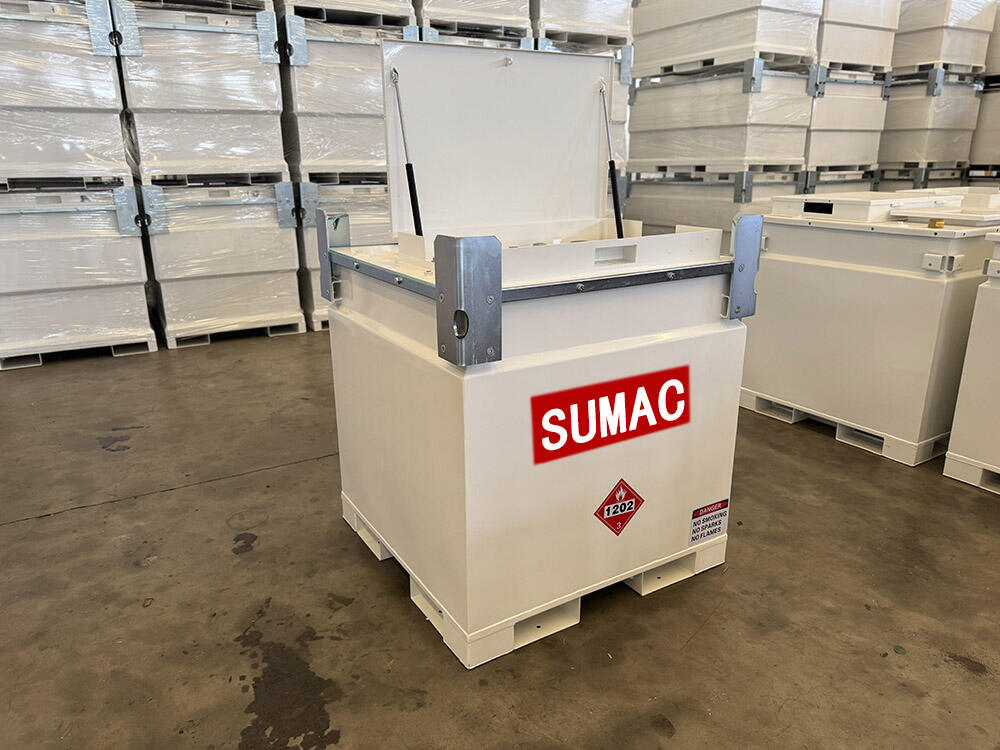
Recommended Products
Hot News
-
Double wall portable diesel gasoline cube tank with pump sale for Mauritius
2024-11-11
-
Double Walled Portable Fuel TransferCube Tank Ship To Spain
2024-11-07
-
Shipping of portable aviation fuel tank with pump
2024-10-12
-
Carbon steel diesel fuel cube tank ship to USA
2024-11-14
-
Carbon steel cube tank with pump
2024-11-13
-
Fuel Transfer Tank Cube Stationary Double Walled Diesel Storage Tank Sale For Spain
2024-11-06
-
251 US Gallon 552 Gallon Fuel Cube Transfer Tank Sale For USA
2024-11-05
-
251-2000 Gallon Fuel Cube Transfer Tank Sale For Grenada
2024-11-01
-
552 Gallon portable fuel dispenser with tank sale for USA
2024-10-30
-
Mobile fuel tank with pump sale for Spain
2024-10-22
 EN
EN
 AR
AR
 BG
BG
 HR
HR
 CS
CS
 DA
DA
 NL
NL
 FI
FI
 FR
FR
 DE
DE
 EL
EL
 IT
IT
 JA
JA
 KO
KO
 NO
NO
 PL
PL
 PT
PT
 RO
RO
 RU
RU
 ES
ES
 SV
SV
 TL
TL
 ID
ID
 LT
LT
 SR
SR
 SK
SK
 SL
SL
 UK
UK
 VI
VI
 HU
HU
 TH
TH
 TR
TR
 MS
MS
 GA
GA
 IS
IS
 KA
KA
 HT
HT
 KK
KK
 UZ
UZ


